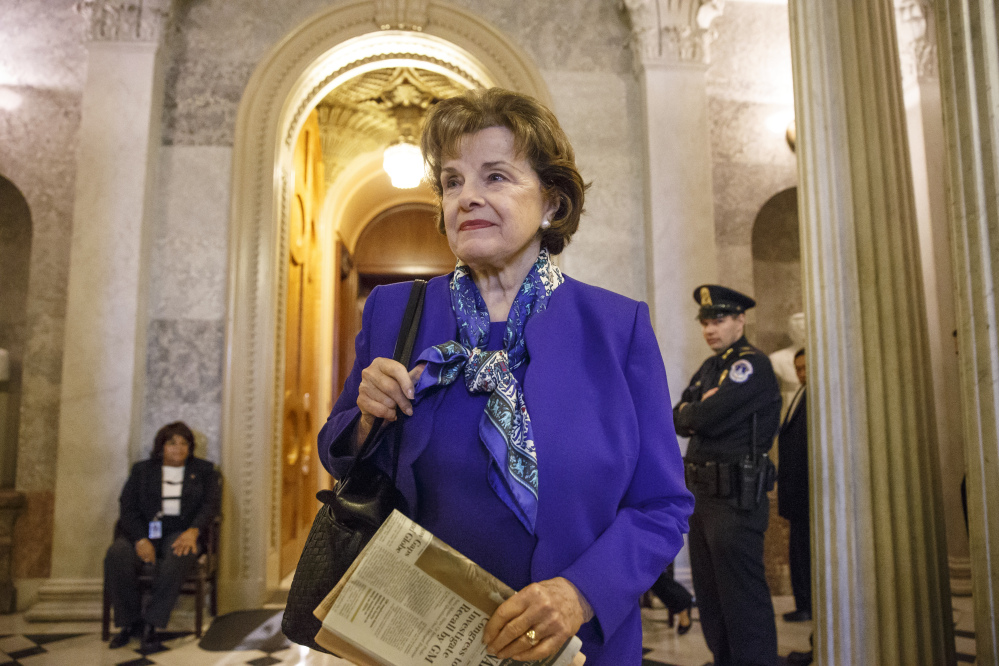Victims of child pornography are entitled to restitution from those who victimize them, the U.S. Supreme Court ruled in 2014. But the means for doing so are incredibly burdensome, and Congress should change that.
The U.S. Senate unanimously passed a bill to do just that in January, but it has not made any progress in the House.
Co-sponsored by Sens. Orrin Hatch, R-Utah, and Dianne Feinstein, D-Calif., and a long list of other lawmakers, the measure is one of those ideas that make people wonder why this law isn’t already on the books.
Senate Bill 2152 is necessary because of the Supreme Court ruling that victims of child pornography are entitled to very limited restitution from the perpetrators. But the justices burdened victims to pursue cases seeking restitution from each individual found to possess images of them.
Last week, every state attorney general in the United States and four territorial attorneys general sent a letter to congressional leaders encouraging them to establish full restitution for the aggregate harm to victims of child pornography. Washington state Attorney General Bob Ferguson and Utah Attorney General Sean Reyes led the effort, after the Supreme Court appeared to dismiss their advice in an amicus brief along the same lines.
The Amy, Vicky and Andy Child Pornography Assistance bill offers a way to help victims recover and includes a practical way to finance the restitution.
The proposal would use perpetrator fines, up to $17,000 for possession, up to $35,000 for distribution and up to $50,000 for production to compensate victims. Extra money could be taken, if needed, from the federal Crime Victims Fund to pay for restitution requests. Victims could request a single payment of $35,000 from the Child Pornography Victims Reserve, or use a relatively simple compensation formula for larger cases of pornography production and trafficking.
This new assistance is needed, in part, because child pornography is a crime that continuously hurts victims, Hatch argues. Feinstein points out that the victims of these crimes are affected for the rest of their lives.
“Let’s stand together and send a clear message to pornographers that we’re going to stand with the victims on this one,” said Rebecca O’Connor, vice president of public policy for the Rape, Abuse and Incest National Network. Her group has endorsed the proposal with other organizations including the National Center for Victims of Crime.
This bill is a good compromise between previous Senate and House proposals. The House should not hesitate to take the bill up and pass it.
Editorial by The Seattle Times
Copy the Story LinkSend questions/comments to the editors.



Success. Please wait for the page to reload. If the page does not reload within 5 seconds, please refresh the page.
Enter your email and password to access comments.
Hi, to comment on stories you must . This profile is in addition to your subscription and website login.
Already have a commenting profile? .
Invalid username/password.
Please check your email to confirm and complete your registration.
Only subscribers are eligible to post comments. Please subscribe or login first for digital access. Here’s why.
Use the form below to reset your password. When you've submitted your account email, we will send an email with a reset code.